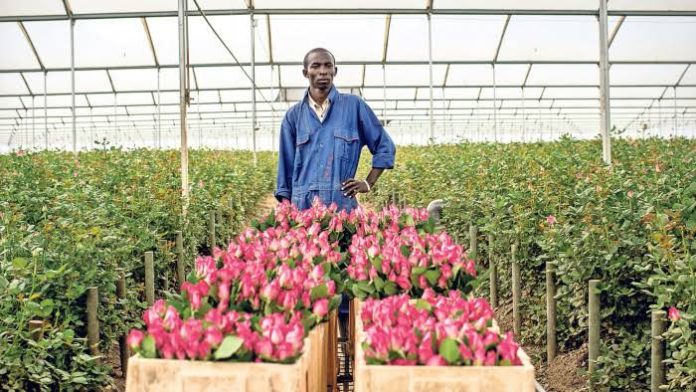Kenya’s flower industry, a significant pillar of the nation’s economy, generates close to $700 million in annual exports, playing a crucial role in the global horticultural market. Beyond this impressive financial contribution, the sector creates thousands of direct jobs within flower farms, while indirectly supporting livelihoods across numerous auxiliary services, including logistics, transportation, and quality control.
In a pivotal engagement today, I joined key stakeholders from across the industry in a strategic dialogue aimed at enhancing the sector’s global competitiveness. The meeting brought together prominent figures, including representatives from the Kenya Flower Council, National Treasury’s Principal Secretary Dr. Chris Kiptoo, Kenya Plant Health Inspectorate (KEPHIS) CEO Dr. Theophilus Mutui, KenTrade CEO David Ngarama, and other vital industry leaders.
The discussions centered on addressing critical challenges and opportunities facing Kenya’s flower exports, particularly the need to streamline processes, maintain stringent quality standards, and open up new markets. With Kenya ranked among the world’s top flower exporters, ensuring that the industry remains competitive on the global stage is of paramount importance to sustaining this vibrant sector.
National Treasury Principal Secretary, Dr. Chris Kiptoo, highlighted the importance of financial policies that foster growth within the industry while enabling greater market access. He emphasized that robust governmental support, in tandem with the private sector, is key to maintaining Kenya’s leadership position in the flower export market.
On the regulatory side, KEPHIS CEO Dr. Theophilus Mutui underscored the critical role that plant health inspections play in safeguarding the industry from emerging diseases and pests, which can severely disrupt production and export timelines. Dr. Mutui also highlighted the need for continuous improvement in monitoring systems, both at the farm level and during post-harvest processes, to ensure that Kenya’s flowers meet the highest international standards.
KenTrade CEO David Ngarama provided insights into how digital innovations and trade facilitation tools can help streamline export procedures, reduce costs, and shorten delivery times. The integration of technology into trade processes, such as the use of e-certificates and enhanced traceability systems, was emphasized as a way to ensure faster and more efficient movement of Kenya’s floral products to international markets.
Other stakeholders present at the meeting expressed optimism about the future of the industry. They agreed that collaboration between government agencies, flower producers, exporters, and supporting sectors is essential to overcoming challenges and capitalizing on new opportunities.
The collective effort of these key players is poised to drive the Kenyan flower industry to new heights, ensuring its continued success in an increasingly competitive global market. With strong policies, innovative technologies, and a commitment to quality, Kenya’s flowers will continue to grace markets around the world, bringing economic prosperity to the country and providing livelihoods to millions.

